Happy Wednesday! For the Washington Post, coffee roaster Todd Carmichael wrote about how President Donald Trump’s tariffs will dramatically raise prices on that precious black nectar, which keeps society afloat and newsletters churning. Morning Dispatchers are advised to start hoarding beans like doomsday preppers.
Quick Hits: Today’s Top Stories
- The consumer price index (CPI)—a common measure of inflation that shows the change in prices for select goods and services over time—increased 2.7 percent year-over-year in July and ticked up 0.2 percent from June, according to a Bureau of Labor Statistics report released on Tuesday. The report indicated that the index for shelter, which has jumped 3.7 percent since July 2024 and 0.2 percent from last month, was the “primary factor” for the overall CPI increase. Meanwhile, the CPI excluding two of the more volatile indexes, food and energy, increased 3.1 percent in July from last year and 0.3 percent since June.
- Ukrainian President Volodymyr Zelensky on Tuesday said that Russian President Vladimir Putin had demanded that Ukrainian troops withdraw from the portions of Donetsk province they still control as a precondition for a ceasefire, which Zelensky rejected. “We will not leave [the region] Donbas. We cannot do this. Everyone forgets the first part—our territories are illegally occupied,” Zelensky said, claiming that U.S. officials had informed him of the Russian offer. Also on Tuesday, 26 European Union countries issued a statement in support of Ukraine ahead of the Friday meeting between U.S. President Donald Trump and Putin, declaring that “international borders cannot be changed by force.” The lone EU dissenter was Hungary, whose president, Viktor Orbán, said Tuesday that Russia had already won the war.
- The 4th U.S. Circuit Court of Appeals ruled 2-1 Tuesday that the Department of Government Efficiency (DOGE) can access sensitive federal data at the Treasury Department, Education Department, and Office of Personnel Management, including Social Security numbers and individuals’ citizenship status. The decision vacated a February preliminary injunction that had blocked DOGE from accessing these records, with labor unions including the American Federation of Teachers arguing that such access violated federal privacy laws.
- According to internal Pentagon documents obtained by the Washington Post, the Trump administration is considering the establishment of a “Domestic Civil Disturbance Quick Reaction Force:” a group of 600 National Guard troops, stationed in Alabama and Alaska, who could be swiftly deployed to cities facing protests or unrest. The National Guard tested a similar concept ahead of the 2020 election, but an always-available version could cost hundreds of millions of dollars, according to the Pentagon documents.
- Investigators have found evidence suggesting Russia played a role in recently hacking the federal court filing system, according to a report by the New York Times. Whether the hack was conducted directly through Russian intelligence, through another country, or done by multiple sources is still unclear, but the breach targeted cases tied to criminal activity with an international aspect, Times reported. Supreme Court officials have been keeping certain cases off the court system’s digital platform since U.S. officials alerted the judicial system of the interference. Attempts to hack the system go back to at least 2021.
- New South Korean President Lee Jae Myung will plan to visit Trump in Washington, D.C., on August 25. Lee has vowed to make the economy a priority, including strengthening the country’s industries against an unpredictable U.S. partnership. Lee and Trump plan to discuss aspects of the two countries’ July trade deal—which includes a 15 percent tariff on South Korean imports—and defense of South Korea’s border with North Korea. Trump has repeatedly lamented the cost of keeping U.S. troops at the border.
- Ohio Democrats are celebrating the news that former three-term Sen. Sherrod Brown will again run for Senate in 2026 after losing his seat last year to Republican Bernie Moreno. Brown will challenge Sen. Jon Husted, appointed earlier this year to fill the seat of Vice President J.D. Vance. Brown has remained popular in the state, even as the voters leaned rightward, winning by nearly a 7-point margin against Republican Jim Renacci in 2018, two years after Trump won the state during his first presidential election.
- After a yearslong legal battle between media outlets and Texas’ Uvalde Consolidated Independent School District and Uvalde County, the final records from a 2022 school shooting there—in which a former student killed 19 students and two teachers—were released Tuesday. These include six hours of police body camera footage, in which parents beg police officers to intervene and documents disclosing that officers had visited the gunman’s home three months before the shooting, after his mother said she was scared of him. Nearly 400 local officers waited 70 minutes outside while the shooting was ongoing. Two officers face charges of child endangerment and abandonment.
A message from GlobalPost
China Advances in ‘Silent War’ Against US Dollar
In July, the central banks of China and Egypt signed agreements to promote the use of the yuan in trade and investment that would likely include a currency swap, yuan-denominated panda bonds, and cooperation on electronic payments, including expanding the use of the Cross-Border Interbank Payment System (CIPS), China’s alternative to the Western-led SWIFT international payment network.
With the deal, Egypt joins a growing list of African nations that have yuan-based agreements with China. But more significantly, with this push, China is quietly turning Africa into a financial battleground, the frontline in a “silent war” against the US dollar.
Trump Deploys National Guard, Seizes D.C. Police
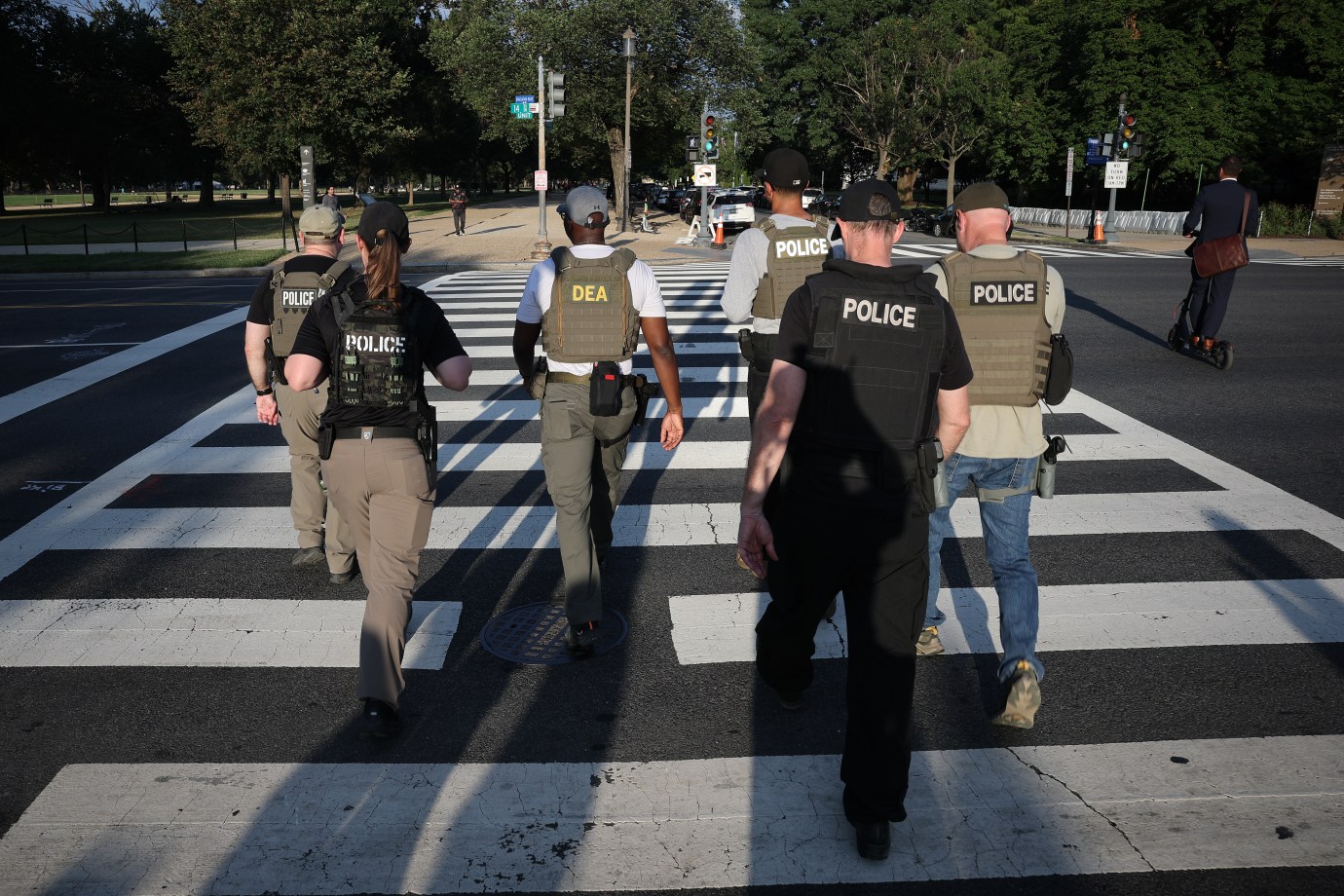
It all started with the assault of a 19-year-old who calls himself “Big Balls.” The former Department of Government Efficiency (DOGE) staffer, Edward Coristine, was out at 3 a.m. on Sunday, August 3, in Washington, D.C.’s Logan Circle, when he was attacked by a group of teens attempting to carjack him. Police eventually intervened and later arrested two suspects, but the attack left Coristine beaten and bloodied.
President Donald Trump posted a picture of the injured staffer on Truth Social two days after the incident, writing that crime in the capital “is totally out of control” and threatening to “FEDERALIZE this City.” Less than an hour later, former DOGE chief Elon Musk repeated the message on X: “It is time to federalize DC.”
As a non-paying reader, you are receiving a truncated version of The Morning Dispatch. You can read our full item in the members-only version of TMD.
It didn’t take long for Trump to put his plans into action. Days later, at a news conference on Monday, Trump ordered the mobilization of the District of Columbia National Guard and assumed control over the Metropolitan Police Department. He also said that officers with the FBI, the Drug Enforcement Agency, and the Immigration and Customs Enforcement agency would patrol D.C. streets. “This is liberation day in D.C. and we’re going to take our capital back,” Trump said, saying the city was in a state “of complete and total lawlessness.”
While it may seem like the decision could be destined for litigation in the courts, like his July deployment of the California National Guard, the situation in Washington is different. Instead of being under the command of a state governor—as is the case with other National Guard unites—D.C. National Guardsmen are federal forces, under the command of the president. Congress passed legislation in 1802 allowing President Thomas Jefferson to form the branch, including a clause stating that the president is “authorized to call them into service” in the same manner as governors of states.
It’s much less clear whether Trump can command similar authority over the city’s police force. Jurisdiction over Washington’s police department has remained with the city’s mayor since Congress passed the D.C. Home Rule Act in 1973. However, that federal law limits when the president may exert temporary control over local law enforcement. Specifically, the president can do so when he “determines that special conditions of an emergency nature exist which require the use of the Metropolitan Police force for Federal purposes.” In the executive order he issued Monday, Trump determined that a “crime emergency” currently occurring in the nation’s capital met those conditions.
Others disagreed. “There is no crime emergency in the District of Columbia,” D.C. Attorney General Brian Schwalb tweeted later that day, calling the president’s actions “unprecedented, unnecessary, and unlawful.”
So the legality of Trump’s police takeover appears to hinge on what constitutes an emergency. “The answer, unfortunately, is it hasn’t been defined,” Laurence Tribe, a professor emeritus of constitutional law at Harvard Law School, told TMD. The law only states that the president may assume control of city police for up to 30 days if he “determines” that special conditions for an emergency are present. But, as Tribe explained, a federal district court could always step in, “and say, ‘by no reasonable definition is there an emergency in the District of Columbia warranting this kind of takeover.’”
But such a legal fight could stretch all the way to the Supreme Court, which could reconsider 1) whether crime in the city qualifies an emergency and 2) whether courts have the authority to overrule a president’s “determination” of one. How is this likely to play out? A federal district court may consider issuing a preliminary injunction or temporary restraining order to pause the move, but ultimately, Tribe said, “You never know what the U.S. Supreme Court will do.”
D.C. officials have said long-term crime statistics show that the city’s crime problem is improving. The district’s non-voting delegate to Congress, Eleanor Holmes Norton, said in a statement (in which she also called for statehood) that 2024 marked a 30-year low of crime in D.C., and it was down a further 26 percent this year. On January 3, then-D.C. U.S. Attorney Matthew Graves provided similar data: “Total violent crime for 2024 in the District of Columbia is down 35% from 2023,” he said, citing police data. Between 2024 and 2023, he added, “homicides are down 32%; robberies are down 39%; armed carjackings are down 53%; assaults with a dangerous weapon are down 27%.”
But a White House fact sheet published Monday paints a grim picture. “Washington, D.C.’s murder rate is roughly three times higher than that of Islamabad, Pakistan, and 18 times higher than that of communist-run Havana, Cuba,” it stated. The administration highlighted that the district’s homicide rate grew from 13.9 per 100,000 residents in 2012 to a rate of 27.3 in 2024, and cited analysis from a May report by the Heritage Foundation, which concluded, “If D.C. were a state, it would have the highest homicide rate of any state in the United States.” Washington doesn’t fare well compared to major U.S. cities either, with the fourth-highest homicide rate in 2024, the administration added, citing a working paper from the Rochester Institute of Technology’s Center for Public Safety Initiatives.
How do we make sense of these disparities? As data analyst Jeff Asher explained on his Substack, Jeff-alytics: “Multiple things are true.” “Violent crime in DC is down a huge amount from where it was in the early 1990s and down a good bit from where it was a decade ago,” he wrote. “Violent crime in DC fell in 2024 after increasing in 2023, that much is clear from DC’s reporting to the FBI.” Asher added that violent crime in 2025 appears to be declining, though the available data is a “bit murkier.”
So judging whether crime in D.C. is decreasing requires the followup question: “Since when?” Violent crime is less of a problem now than it was in the 1990s, but in 2023, the city recorded its highest homicide rate—38.8 per 100,000 people—in 20 years. “D.C. crime has gone down this year over last year, it’s gone down last year over 2023, but it’s still markedly higher than it was 10 to 15 years ago,” Mike Fox, a legal fellow at the Cato Institute’s Project on Criminal Justice and former public defender, told TMD. “D.C. is not an outlier in that,” he added, noting that other major U.S. cities have experienced similar trends.
Are D.C. National Guardsmen and federal agents the solution the city needs? Fox expects they will be ill-equipped to tackle the problem, and that “the results are going to be marginal at best.” As he noted: “Why do we have them doing foot patrols in the National Mall—when you look up the statistics on the National Mall, there’s no actual crime that even occurs there?”
Today’s Must-Read

Dying of Neglect
Toeing the Company Line
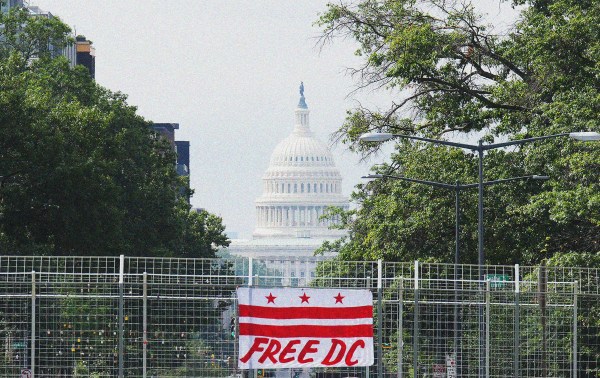

Seizing Russia’s Reserves, Explained

A Letter From Greenland

Tariff Revenues Are Just Taxes on Americans

Manipulating the Weather | Interview: Dr. David Keith
Worth Your Time
- Donald Trump may talk tough on China, but Greg Ip writes in the Wall Street Journal that Trump’s economic agenda is starting to resemble Chinese President Xi Jinping’s “state capitalism”: “A generation ago conventional wisdom held that as China liberalized, its economy would come to resemble America’s. Instead, capitalism in America is starting to look like China. Recent examples include President Trump’s demand that Intel’s chief executive resign; the 15% of certain chip sales to China that Nvidia and Advanced Micro Devices will share with Washington; the ‘golden share’ Washington will get in U.S. Steel as a condition of Nippon Steel’s takeover; and the $1.5 trillion of promised investment from trading partners Trump plans to personally direct.”
- Many TMD commenters on our Monday issue were alarmed by AI users reporting feeling “devastated” by no longer being able to use OpenAI’s phased-out 4o model. In his latest Substack piece, Derek Thompson shares those feelings: “To the AI, the patient typing into the box is always reasonable, always doing their best, and always deserving of a gold star. By contrast, a good therapist knows that their patients are sometimes unreasonable, occasionally not doing anything close to their best, and even deserving of a smack upside the head. Reassurance is part of being a good counselor. But a wise psychologist knows when to tell their patients that they’re wrong or, at least, how to guide them toward their own authentic realization of the same fact.”
Presented Without Comment
Washington Post: Mixed Signals Over Who’s In Charge Of D.C. Police After Trump Takeover
District officials said they were still in command of the department, operating as usual having received no new orders from the Trump administration. The city’s police chief, Pamela A. Smith, has been supplying ideas about how federal law enforcement could be used by D.C.—not the other way around, according to a D.C. official who spoke on the condition of anonymity to describe sensitive, ongoing talks.
Also Presented Without Comment
New York Times: White House Announces Comprehensive Review of Smithsonian Exhibitions
In its letter, the White House says its review “aims to ensure alignment with the president’s directive to celebrate American exceptionalism, remove divisive or partisan narratives and restore confidence in our shared cultural institutions.” It adds that the “goal is not to interfere with the day-to-day operations of curators or staff, but rather to support a broader vision of excellence that highlights historically accurate, uplifting and inclusive portrayals of America’s heritage.”
In the Zeitgeist
Jazz vocalist Sheila Jordan has died at 96. One of the most distinctive voices in modern jazz, her 1962 debut album, Portrait of Sheila, remains a landmark Blue Note recording and, in 2012, she was named by the National Endowment of the Arts a Jazz Master. TMD would recommend this fabulous live performance:
Let Us Know
Is Trump’s move a legitimate use of the president’s powers, or a dangerous overstep?
Correction, August 13, 2025: This newsletter has been updated to correct the spelling of Ohio Republican Jon Husted’s last name.





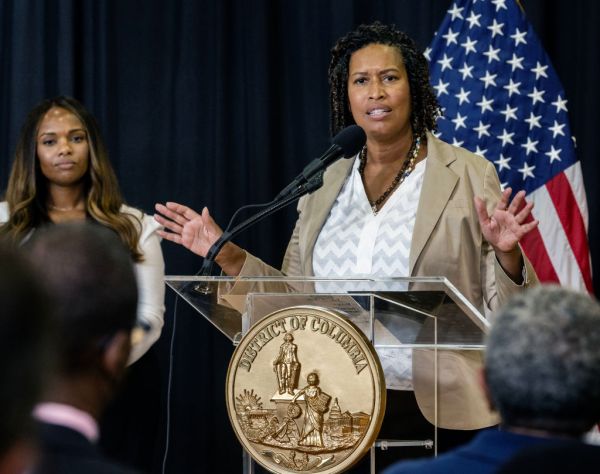
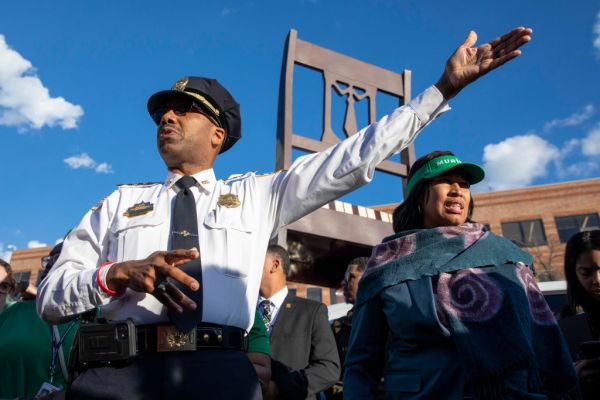
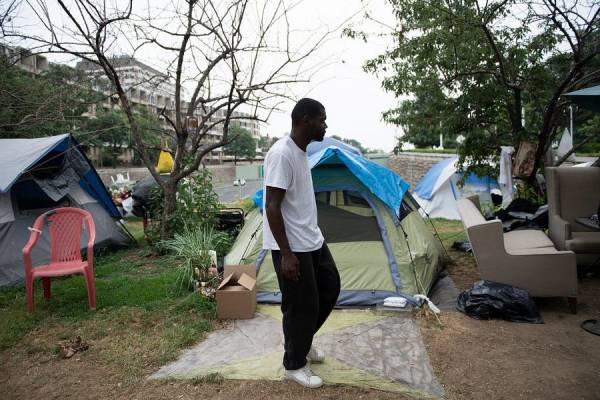

Please note that we at The Dispatch hold ourselves, our work, and our commenters to a higher standard than other places on the internet. We welcome comments that foster genuine debate or discussion—including comments critical of us or our work—but responses that include ad hominem attacks on fellow Dispatch members or are intended to stoke fear and anger may be moderated.
With your membership, you only have the ability to comment on The Morning Dispatch articles. Consider upgrading to join the conversation everywhere.